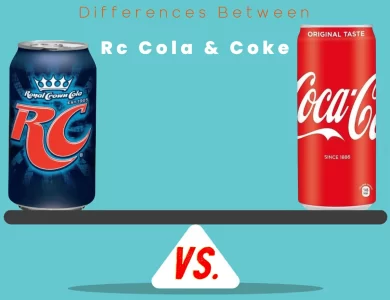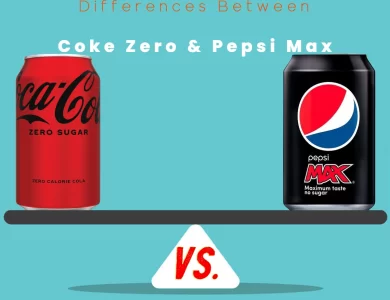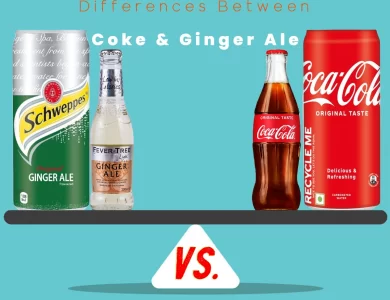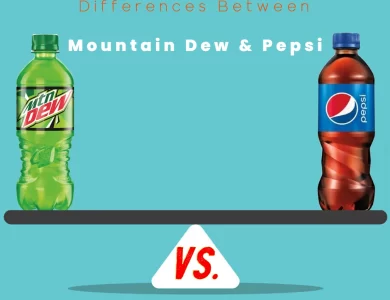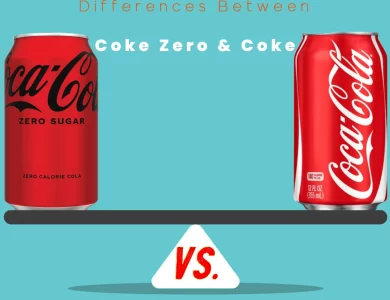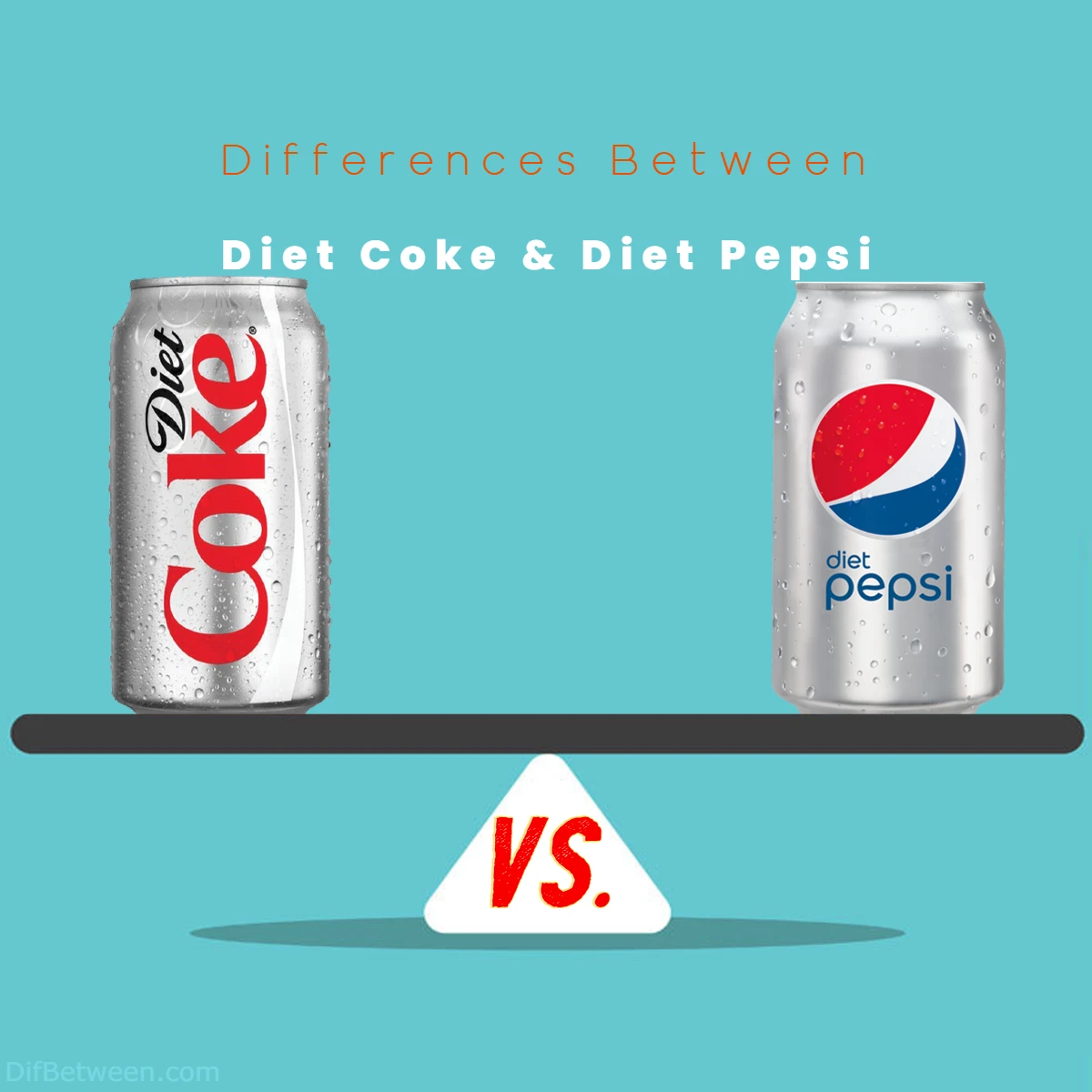
| Aspect | Diet Coke | Diet Pepsi |
|---|---|---|
| Taste | Crisp, slightly tangy, moderate sweetness | Smooth, slightly sweeter taste |
| Sweeteners | Aspartame, Acesulfame Potassium | Sucralose, Acesulfame Potassium |
| Caffeine Content | Approximately 46mg per 12 oz can | Approximately 35mg per 12 oz can |
| Sodium Content | Approximately 40mg per 12 oz can | Approximately 35mg per 12 oz can |
| Limited Editions | Diet Coke with Lime, Cherry, Raspberry, etc. | Diet Pepsi Wild Cherry, Vanilla, etc. |
| Brand Loyalty | Iconic status, long-standing fan base | Devoted following, strong cultural presence |
| Marketing Campaigns | “Diet Coke Break,” “Just for the Taste of It” | “Generation Next,” “That’s What I Like” |
| Global Reach | Available in over 180 countries | Widespread distribution, global presence |
| Product Line Expansions | Diet Coke Feisty Cherry, Twisted Mango, etc. | Diet Pepsi Lime, Caffeine-Free, Jazz, etc. |
| Environmental Efforts | Commitment to sustainability initiatives | Pledges to reduce greenhouse gas emissions |
| Consumer Preference | Tangy and moderate sweetness | Smoother and slightly sweeter taste |
| Packaging Variety | Various sizes and containers available | Multiple options for different preferences |
| Artificial Sweeteners | Aspartame, approved by regulatory agencies | Sucralose, deemed safe for consumption |
If you find yourself pondering the eternal question of Diet Coke versus Diet Pepsi, fret not! Today, we embark on a delightful exploration of the key differences between these two iconic diet sodas.
icture this: you’re standing in front of a colorful soda aisle, trying to decide which bubbly delight deserves a spot in your shopping cart. Diet Coke, with its crisp tanginess and moderate sweetness, promises a zesty adventure for your taste buds. On the other hand, Diet Pepsi lures you with its smooth and slightly sweeter taste, offering a mellow refreshment that’s oh-so-inviting. Both sodas use different artificial sweeteners to achieve their calorie-free magic – Diet Coke opting for aspartame and acesulfame potassium, while Diet Pepsi leans on sucralose and acesulfame potassium.
Differences Between Diet Coke and Diet Pepsi
Taste Showdown: The Sweetness Spectrum
When it comes to taste, Diet Coke and Diet Pepsi have their unique formulas that set them apart. One of the primary elements that differentiate these two beverages is the level of sweetness they offer.
Diet Coke: Diet Coke boasts a crisp and distinct taste that has been cherished for decades. As the flagship sugar-free alternative to the classic Coca-Cola, it has a slightly tangy and citrusy profile that appeals to many palates. The iconic cola flavor in Diet Coke is accompanied by a gentle sweetness, making it a popular choice for those who prefer a beverage that’s not overly sugary.
Diet Pepsi: On the other side of the sweetness spectrum, Diet Pepsi offers a slightly sweeter taste compared to Diet Coke. This characteristic sweetness is designed to complement the Pepsi flavor profile that fans know and love. With a smoother and more mellow taste, Diet Pepsi aims to capture the hearts of those who appreciate a soda with a touch of extra sweetness.
To help you visualize the difference in sweetness levels, here’s a simple comparison table:
| Diet Coke | Diet Pepsi | |
|---|---|---|
| Taste | Crisp, slightly tangy | Smooth and slightly sweet |
| Sweetness | Moderate | Slightly higher |
The Ingredients Behind the Bubbles
When it comes to diet sodas, the ingredients play a vital role in crafting the perfect beverage with zero calories. Let’s take a closer look at what makes Diet Coke and Diet Pepsi effervescent delights:
Diet Coke: Diet Coke’s ingredient list includes carbonated water, caramel color, phosphoric acid, natural flavors, aspartame, potassium benzoate, caffeine, and acesulfame potassium. The key sweeteners here are aspartame and acesulfame potassium, providing the delightful taste without adding to your calorie count. Caffeine, of course, gives you that much-needed perk-up.
Diet Pepsi: Turning our attention to Diet Pepsi, we find carbonated water, caramel color, phosphoric acid, potassium benzoate, sucralose, acesulfame potassium, and natural flavors in its lineup. The sweeteners sucralose and acesulfame potassium give Diet Pepsi its characteristic sweetness, while caffeine adds that energetic touch.
Let’s sum up the main sweeteners used in each beverage:
| Diet Coke | Diet Pepsi | |
|---|---|---|
| Sweeteners | Aspartame, Acesulfame K | Sucralose, Acesulfame K |
Brand Loyalty and Cultural Impact
The battle between Diet Coke and Diet Pepsi goes beyond just taste and ingredients. These two beverages have created loyal fan bases and have made their mark in pop culture.
Diet Coke: Diet Coke has achieved an iconic status since its introduction in 1982. Marketed as a sugar-free alternative to Coca-Cola, Diet Coke quickly gained popularity and became a cultural phenomenon. Its bold and recognizable packaging, featuring the silver and red design, has become synonymous with the brand. Over the years, Diet Coke has collaborated with various artists, designers, and influencers to maintain its relevance and cultural impact.
Diet Pepsi: Not to be outdone, Diet Pepsi has its own devoted following. Since its launch in 1964, Diet Pepsi has been a major player in the diet soda market. The brand’s blue and silver logo has become instantly recognizable, and its advertising campaigns have featured numerous celebrities and pop culture icons. Diet Pepsi’s association with music, sports, and entertainment has further solidified its place in the hearts of consumers.
Packaging and Availability
Packaging and availability play a significant role in shaping consumer preferences. Let’s examine how Diet Coke and Diet Pepsi present themselves on store shelves:
Diet Coke: Diet Coke is often available in a variety of packaging options. From the classic 12-ounce cans to larger 2-liter bottles and even sleek glass bottles, consumers have a range of choices. The brand has also released limited-edition cans featuring unique designs, often tied to special events or partnerships. Additionally, Diet Coke is widely distributed globally and can be found in grocery stores, convenience stores, restaurants, and vending machines.
Diet Pepsi: Similarly, Diet Pepsi offers a range of packaging options, including 12-ounce cans, 2-liter bottles, and plastic bottles of different sizes. Like Diet Coke, Diet Pepsi has also introduced limited-edition packaging designs to appeal to collectors and fans. The availability of Diet Pepsi is widespread, making it easily accessible to consumers worldwide.
Nutritional Aspects: Sodium Content
Beyond the taste and ingredients, it’s essential to consider the nutritional aspects, particularly sodium content, when comparing Diet Coke and Diet Pepsi.
Diet Coke: In a standard 12-ounce can of Diet Coke, you’ll typically find around 40 milligrams of sodium. This low sodium content is one of the reasons why Diet Coke is favored by those who are mindful of their sodium intake.
Diet Pepsi: Diet Pepsi also maintains a low sodium content, with approximately 35 milligrams in a regular 12-ounce can. Similar to Diet Coke, this makes Diet Pepsi a suitable choice for individuals looking to limit their sodium consumption.
Caffeine Content: A Wake-Up Call
Caffeine content is another factor to consider, especially for those who rely on these diet sodas for a little pick-me-up during the day.
Diet Coke: A 12-ounce can of Diet Coke typically contains around 46 milligrams of caffeine. While not the highest caffeine content among sodas, it’s enough to give you a gentle energy boost when needed.
Diet Pepsi: Diet Pepsi, in a 12-ounce can, usually provides around 35 milligrams of caffeine. While slightly lower than Diet Coke’s caffeine content, it’s still sufficient to offer a mild jolt of energy.
Let’s summarize the caffeine content for each beverage:
| Diet Coke | Diet Pepsi | |
|---|---|---|
| Caffeine | Approximately 46mg | Approximately 35mg |
Marketing and Advertising Strategies
Marketing and advertising have played a crucial role in promoting both Diet Coke and Diet Pepsi. Each brand has its approach to connect with consumers.
Diet Coke: Diet Coke has a long history of captivating advertisements. The brand often focuses on themes of refreshment, fun, and youthfulness in its marketing campaigns. Over the years, they have collaborated with various celebrities, from actors to musicians, to keep their image fresh and relevant.
Diet Pepsi: Diet Pepsi’s marketing strategy has also been impressive. Their commercials often feature high-profile celebrities and sports figures, emphasizing the association with an active and vibrant lifestyle. The brand’s advertising targets a broad audience, and they have effectively used humor and memorable slogans to connect with consumers.
Environmental Impact and Sustainability Efforts
As consumers become more environmentally conscious, the sustainability efforts of companies are becoming increasingly important. So, how do Diet Coke and Diet Pepsi fare in this aspect?
Diet Coke: The Coca-Cola Company, which owns Diet Coke, has undertaken several sustainability initiatives. They have set ambitious goals to reduce their carbon footprint, promote recycling, and use more eco-friendly packaging materials. They are also actively involved in various water replenishment and community-based projects worldwide.
Diet Pepsi: PepsiCo, the parent company of Diet Pepsi, is also committed to sustainability. They have pledged to reduce greenhouse gas emissions and conserve water in their operations. PepsiCo has been working on innovative packaging solutions and investing in recycling programs to make a positive impact on the environment.
Diet Coke vs. Diet Pepsi: The Battle of Limited Editions
Both Diet Coke and Diet Pepsi have shown their creative side by releasing limited edition flavors over the years. These special editions often aim to captivate consumers with unique taste experiences. Let’s delve into their foray into limited edition offerings:
Diet Coke: Diet Coke has delighted fans with a diverse array of limited edition flavors, ranging from fruity twists to surprising combinations. Some of the notable limited editions include Diet Coke with Lime, Diet Coke with Cherry, Diet Coke with Raspberry, and even exotic flavors like Diet Coke Ginger Lime. These limited editions are typically available for a limited time, encouraging collectors and enthusiasts to try out something new.
Diet Pepsi: Following in the footsteps of Diet Coke, Diet Pepsi has introduced its own share of limited edition flavors. Diet Pepsi Wild Cherry and Diet Pepsi Vanilla are among the variations that have made appearances on store shelves. These special editions allow fans to enjoy a refreshing take on the classic Diet Pepsi taste.
Iconic Advertising Campaigns: From Celebrities to Catchphrases
Both Diet Coke and Diet Pepsi have created unforgettable advertising campaigns that have left a lasting impact on pop culture. These campaigns have featured famous faces, memorable slogans, and heartwarming stories:
Diet Coke: “Diet Coke Break” was one of the most iconic advertising campaigns by Diet Coke, featuring attractive, working men taking a break and sipping on the beverage. The 1990s “Just for the Taste of It” campaign showcased the joy of drinking Diet Coke and the freedom to be yourself. Additionally, Diet Coke’s “It’s Mine” campaign emphasized personalization and allowed customers to put their names on Coke bottles.
Diet Pepsi: Diet Pepsi’s ads have also made their mark on consumers. The “Generation Next” campaign of the 1990s targeted younger audiences and featured popular celebrities of that time. More recently, Diet Pepsi has embraced a “That’s What I Like” slogan, capturing the essence of enjoyment and personal preference in choosing their soda.
Market Presence and Global Reach
Both Diet Coke and Diet Pepsi have a strong market presence and are available in numerous countries around the world. Their widespread distribution and global reach have contributed to their enduring popularity.
Diet Coke: Diet Coke, as part of The Coca-Cola Company’s portfolio, has a vast global presence. It is sold in over 180 countries and is recognized as one of the most popular diet sodas worldwide.
Diet Pepsi: Diet Pepsi, backed by PepsiCo, is also widely distributed globally. It has a significant market share in various countries and is a major competitor to Diet Coke in the diet soda market.
Calorie-Free Sweeteners: Aspartame vs. Sucralose
The sweeteners used in diet sodas are essential for achieving their calorie-free status. Let’s take a closer look at the main sweeteners employed in Diet Coke and Diet Pepsi:
Diet Coke: Diet Coke primarily relies on two sweeteners: aspartame and acesulfame potassium. Aspartame is an artificial sweetener known for its high sweetness intensity without adding calories. It is commonly used in various low-calorie and sugar-free products.
Diet Pepsi: Diet Pepsi’s main sweeteners are sucralose and acesulfame potassium. Sucralose is also an artificial sweetener, and it is derived from sugar. Like aspartame, sucralose offers intense sweetness without contributing to the calorie count.
Here’s a summary of the primary sweeteners used in each beverage:
| Diet Coke | Diet Pepsi | |
|---|---|---|
| Sweeteners | Aspartame, Acesulfame Potassium | Sucralose, Acesulfame Potassium |
Response to Consumer Preferences: Product Line Expansions
Over the years, both Diet Coke and Diet Pepsi have expanded their product lines to cater to changing consumer preferences. They have introduced new variations and sizes to stay relevant in the ever-evolving beverage market.
Diet Coke: In response to consumer demands, Diet Coke has introduced an array of new flavors and packaging options. In addition to limited editions, they have released permanent additions to their flavor lineup, such as Diet Coke Feisty Cherry and Diet Coke Twisted Mango. These innovations provide customers with exciting choices and alternatives.
Diet Pepsi: Diet Pepsi has also embraced product line expansions to keep up with market trends. They have launched different variations, including Diet Pepsi Lime, Diet Pepsi Caffeine-Free, and Diet Pepsi Jazz, which offered unique flavor combinations.
Health Concerns and Artificial Sweeteners
Artificial sweeteners have been a topic of discussion concerning their impact on health. While they have been deemed safe for consumption by regulatory authorities, some consumers have expressed concerns.
Diet Coke: Aspartame, one of the primary sweeteners in Diet Coke, has been extensively studied and approved as safe by regulatory agencies like the U.S. Food and Drug Administration (FDA) and the European Food Safety Authority (EFSA). However, some individuals may have sensitivity to aspartame or prefer to avoid it due to personal reasons.
Diet Pepsi: Similarly, sucralose, the primary sweetener in Diet Pepsi, has been deemed safe by regulatory authorities. The FDA and EFSA have approved it for use in various food and beverage products. Nonetheless, some individuals may prefer to consume beverages without artificial sweeteners.
Consumer Loyalty and Taste Preferences
Consumer loyalty to a particular brand often stems from individual taste preferences and experiences. The choice between Diet Coke and Diet Pepsi is deeply personal and varies from person to person.
Diet Coke: Fans of Diet Coke often appreciate its crisp and slightly tangy taste. Those who prefer a more moderate sweetness level tend to gravitate towards Diet Coke’s flavor profile. Many long-time Diet Coke enthusiasts have formed strong emotional connections with the brand, making it their go-to choice.
Diet Pepsi: Diet Pepsi enthusiasts, on the other hand, enjoy the beverage’s smoother and slightly sweeter taste. Some individuals prefer the milder sweetness of Diet Pepsi and find it more pleasing to their taste buds. For these loyal fans, Diet Pepsi remains their preferred choice in the diet soda landscape.
Diet Coke or Diet Pepsi: Which One Should You Choose?
Choosing between Diet Coke and Diet Pepsi depends on individual taste preferences, dietary considerations, and even emotional connections with each brand.
- Taste Preference: **It all boils down to your taste buds. Do you prefer a slightly tangy and citrusy flavor with a moderate level of sweetness? If so, Diet Coke might be your perfect match. On the other hand, if you lean towards a smoother, slightly sweeter taste, Diet Pepsi could be your soda soulmate. Consider which taste profile appeals to you the most before making your choice.
- Caffeine Kick: **Are you in need of a little caffeine pick-me-up during the day? Both Diet Coke and Diet Pepsi contain caffeine, but Diet Coke edges out Diet Pepsi in this department with approximately 46 milligrams of caffeine per 12-ounce can, compared to Diet Pepsi’s approximately 35 milligrams. If caffeine is a crucial factor in your decision-making, keep this in mind.
- Nutritional Aspects: **In terms of nutritional content, both Diet Coke and Diet Pepsi are calorie-free and have low sodium levels, making them suitable options for those watching their calorie and sodium intake.
- Environmental Impact: **If sustainability is close to your heart, you’ll be glad to know that both The Coca-Cola Company (Diet Coke) and PepsiCo (Diet Pepsi) have undertaken sustainability initiatives to reduce their environmental footprint. So, you can sip your soda with a bit of eco-friendly peace of mind.
- Brand Loyalty and Cultural Impact: **Consider any personal attachment you might have to either brand. Are you a die-hard fan of Coca-Cola’s legacy and iconic red and silver packaging, or do you feel a stronger connection to Pepsi’s blue and silver logo? Cultural impact and brand loyalty can influence your decision, even if it’s on a subconscious level.
- Limited Edition Flavors: **If you’re an adventurous soul and love trying new things, keep an eye on limited edition flavors released by both brands. Diet Coke and Diet Pepsi often introduce exciting and unique variations, giving you a chance to tantalize your taste buds with something different.
- Variety of Packaging: **Do you have a packaging preference? Both Diet Coke and Diet Pepsi come in various sizes and containers, from classic cans to larger bottles and even glass bottles. Consider which packaging options suit your lifestyle and preferences.
Ultimately, the choice between Diet Coke and Diet Pepsi is a matter of personal preference and what satisfies your unique taste buds. So, why not conduct a fun taste test with both beverages to see which one leaves you more refreshed and satisfied? Remember, in the world of diet sodas, there’s no wrong answer—just a refreshing sip waiting for you to enjoy! Cheers!
FAQs
The main difference lies in their taste profiles. Diet Coke offers a crisp, slightly tangy flavor with a moderate level of sweetness, while Diet Pepsi has a smoother taste with a slightly sweeter profile. The choice between the two often comes down to personal preference.
Diet Coke primarily uses aspartame and acesulfame potassium as its sweeteners, providing the delightful taste without adding to the calorie count. On the other hand, Diet Pepsi relies on sucralose and acesulfame potassium to achieve its signature sweetness.
Diet Coke contains approximately 46 milligrams of caffeine per 12-ounce can, while Diet Pepsi has around 35 milligrams in the same size can. So, if you’re looking for a slightly stronger caffeine kick, Diet Coke might be the way to go.
Yes, both Diet Coke and Diet Pepsi have released limited edition flavors over the years. Diet Coke has featured flavors like Diet Coke with Lime, Cherry, and Raspberry, while Diet Pepsi has offered variations like Diet Pepsi Wild Cherry and Diet Pepsi Vanilla. Keep an eye out for exciting new twists on these classic sodas!
Both Diet Coke and Diet Pepsi have a significant global presence and are available in numerous countries. The popularity of each brand may vary from region to region, but both have earned their place in the hearts of soda enthusiasts worldwide.
Aspartame and sucralose, the primary sweeteners in Diet Coke and Diet Pepsi, have been deemed safe for consumption by regulatory authorities. However, individuals with specific health concerns or sensitivities to these sweeteners may choose to opt for other beverage options.
Yes, both sodas have low sodium levels, making them suitable choices for those watching their sodium intake.
Yes, both The Coca-Cola Company (Diet Coke) and PepsiCo (Diet Pepsi) have undertaken sustainability initiatives to reduce their environmental impact. They have pledged to conserve resources, reduce greenhouse gas emissions, and promote recycling efforts.
The choice ultimately comes down to your personal taste preferences. Both sodas offer a refreshing and guilt-free experience with their unique flavors, so why not try both and see which one delights your taste buds the most? Happy sipping!
Read More:
Contents
- Differences Between Diet Coke and Diet Pepsi
- Taste Showdown: The Sweetness Spectrum
- The Ingredients Behind the Bubbles
- Brand Loyalty and Cultural Impact
- Packaging and Availability
- Nutritional Aspects: Sodium Content
- Caffeine Content: A Wake-Up Call
- Marketing and Advertising Strategies
- Environmental Impact and Sustainability Efforts
- Diet Coke vs. Diet Pepsi: The Battle of Limited Editions
- Iconic Advertising Campaigns: From Celebrities to Catchphrases
- Market Presence and Global Reach
- Calorie-Free Sweeteners: Aspartame vs. Sucralose
- Response to Consumer Preferences: Product Line Expansions
- Health Concerns and Artificial Sweeteners
- Consumer Loyalty and Taste Preferences
- Diet Coke or Diet Pepsi: Which One Should You Choose?
- FAQs
